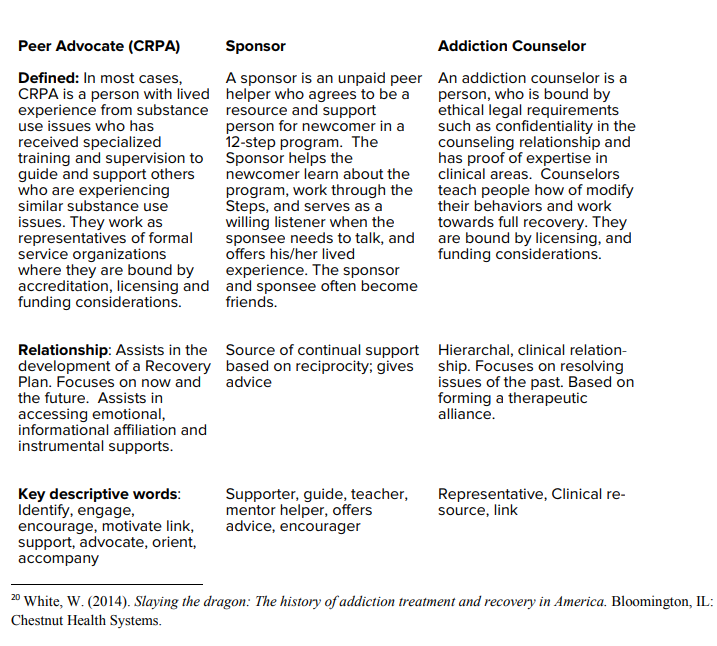From the New York State Office of Alcoholism & Substance Abuse Services
From the New York State Office of Alcoholism & Substance Abuse Services
l
The Peer Integration and Stages of Change Toolkit is a newly released guide on how to integrate peer recovery services for substance use disorder into current service delivery systems.

Important topics covered in the toolkit include: defining peer services • volunteer vs. paid positions • billable services • peer support values • organizational readiness assessment • home and community-based services • hiring peer support professionals • peer certification • proposed rates • personnel and legal considerations • training • peer services and treatment plans • supervision • wellness plans • cultural competency • performance evaluations • risk assessments • recovery oriented language • and more…
l
The Peer Integration and Stages of Change Toolkit is a newly released guide on how to integrate peer recovery services for substance use disorder into current service delivery systems.

Important topics covered in the toolkit include: defining peer services • volunteer vs. paid positions • billable services • peer support values • organizational readiness assessment • home and community-based services • hiring peer support professionals • peer certification • proposed rates • personnel and legal considerations • training • peer services and treatment plans • supervision • wellness plans • cultural competency • performance evaluations • risk assessments • recovery oriented language • and more…
l
The Peer Integration and Stages of Change Toolkit is a newly released guide on how to integrate peer recovery services for substance use disorder into current service delivery systems.

Important topics covered in the toolkit include: defining peer services • volunteer vs. paid positions • billable services • peer support values • organizational readiness assessment • home and community-based services • hiring peer support professionals • peer certification • proposed rates • personnel and legal considerations • training • peer services and treatment plans • supervision • wellness plans • cultural competency • performance evaluations • risk assessments • recovery oriented language • and more…